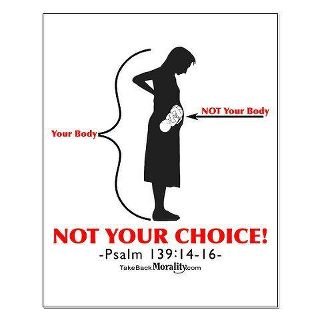Are You Willing to Pay the Moral Price for the Welfare State?
Proponents of big government tell us that the welfare state is a superior model to our (mostly) free-market capitalist system. Its pundits say that while capitalism is an evil machine that draws blood from a stone, the welfare state puts people first.
The Affordable Care Act – Obamacare – was sold in good part on its purported moral virtues, but the same moral arguments are used to sell practically every entitlement program in the welfare state.
There is only one problem. The welfare state is not morally superior to free-market capitalism. The welfare state may look good on paper, but its practice is often the exact opposite. Its moral price tag is at least as steep as its economic costs.
Let us look at three examples of where this ethical cost comes from.
The first example has to do with the relentless pursuit of revenue for the welfare state. We all know that taxes slow down productive private economic activity. To some degree, businesses and families accommodate to taxes and try to minimize the burden as far as possible. But there comes a point where the end result of taxation is so much less economic activity that government gets a lot less tax revenues than it planned for. To compensate, our legislators look for new revenue sources.
When they have maxed out taxes on morally acceptable activities – such as earning income, owning property and buying clothes for our kids – they turn to taxes on immoral or destructive behavior.
Sometimes referred to as “sin taxes”, these taxes these are taxes on addictive products such as tobacco, alcohol, gambling and in some cases even legalized marijuana.
The meaning of a tax on an addictive product such as tobacco is not to discourage smoking, but to create a permanent revenue stream for government. Case in point: in the spring of 2011 state lawmakers in Louisiana proposed to raise the state’s tobacco tax by 120 percent – to get more revenue for general government spending.
An addiction tax exemplifies how government steps over a critical demarcation line to pay for the welfare state. A single mother receives housing subsidies from the city thanks to the fact that her neighbor continues to smoke.
In fact, these taxes are so common today that we have become blind to the immorality of the whole practice. Politicians can propose addiction taxes as a permanent revenue source without even a moment’s pause to consider what they just said. In Maryland, state legislators want to raise the alcohol tax to pay for new schools and care for the developmentally disabled. In Maine, the 2010 Democrat gubernatorial candidate proposed an increase in the state’s alcohol tax to pay for an expansion of state college education.
How dare you stop drinking and deny your own son a college degree?
Perhaps the standard bearer of addiction tax immorality was a proposal in 2006 from the American Association of Family Physicians (AAFP). In order to pay for an expansion of SCHIP, “Medicaid for kids”, the AAFP proposed an increase in the federal tobacco tax.
In other words, the expansion of government has become such a high priority that even a group of physicians take it for granted that bigger government is more important than the health of individual citizens. (The idea that the private insurance market could to a better job without exploiting people’s tobacco addiction was apparently alien to these doctors.)
The moral price of big government also stretches into government spending. When government has hit a revenue ceiling and cannot raise taxes or borrow anymore, it starts cutting spending. The cuts are not made to shrink government – that takes careful reforms and long-term commitment – but to save the spending programs. (When Congress cut Social Security costs by raising the retirement age it is to make sure they do not have to terminate the program.)
The bigger government gets, the more absurd cuts it makes. Big government is involved in everyhthing under the sun. This means, e.g., recreational activities. The idea is that government should care for all our needs, including playing golf.
The more recreational activities our cities get involved in, the more absurd priorities they make. Last fall, e.g., the city of Topeka, Kansas had to cut spending to balance its budget. The city council happily doled out $796,000 on golfing activities half-a-million on “athletics programs” and $267,000 on a tourist attraction called “Old Town.”
Where did it cut its spending? On the prosecution of domestic violence cases. This saved the city $350,000 per year.
It was more important that the city tried to satisfy the recreational needs of its residents than to send thugs who beat their wives to prison.
But we are not done yet. There is one more step on the immorality ladder. This one has to do with socialized health care, the “crown jewel” of the welfare state.
Under the guise that government is going to give everyone access to all the health care they will ever need, government has seized control over health care in almost all industrialized countries. The result has been rationing, long waiting lists and scores of patients dying of perfectly curable conditions because they cannot get health care in time.
But even this steep moral price is not enough. As a perfect illustration of how the welfare state creates a kind of moral numbness among us, two so called “medical ethicists” recently proposed that infanticide should be made legal so that government can keep its health care costs down.
Yes, that’s right. In the Journal of Medical Ethics professors Alberto Giubilini and Francesca Minerva argue that mothers should have the right to kill their newborn babies if the babies are born with “abnormalities” that otherwise would have permitted an abortion. Their key example is that only 64 percent of all Down’s Syndrome cases are detected during pregnancy. It is a burden, they say, on the family “and on society as a whole, when the state economically provides for their care.”
So first the government seizes control over all health care, then it promises to provide for all our health care needs. When the burden of the welfare state stifles private economic activity and thus forces government to make spending cuts, we should, according to these two “ethicists”, make it legal to kill babies for cost containment purposes.
Infanticide is thankfully illegal, but that is not the point. What is truly scary here is that two supposedly enlightened academics can make a serious moral case, in an established academic journal, for killing babies in the name of the welfare state. This moral numbness has the same origin as another type of moral numbness in another big-government era. In the 1930s so called “racial hygienicists” proposed infanticide for reasons of “racial purity.” Today so called “medical ethicists” propose killing babies that don’t fit the government’s health care budget.
Fiscal eugenics, if you will.
The welfare state is creeping into our lives from all angles, and has been doing so for quite some time already. It is being sold to us as a morally superior social organization, yet in its practice the welfare state is the precise opposite. It is harsh, stingy and sometimes outright authoritarian. It erodes both our economy and the moral foundations of our society.
It has been said that the difference between the welfare state and the totalitarian state is a matter of time. We should take those words seriously.




